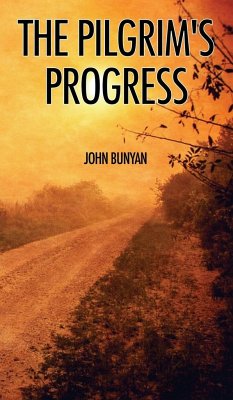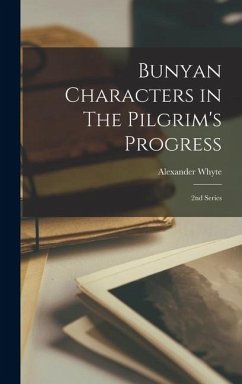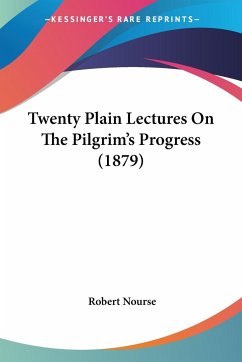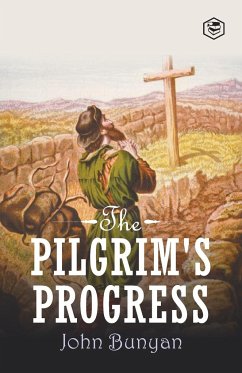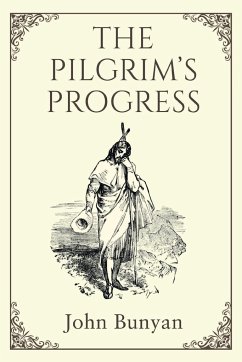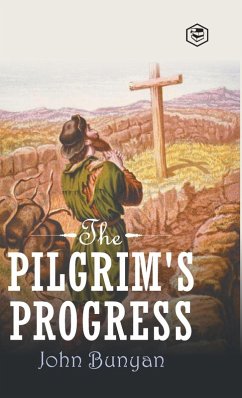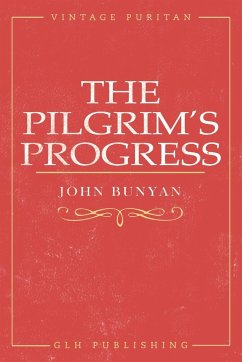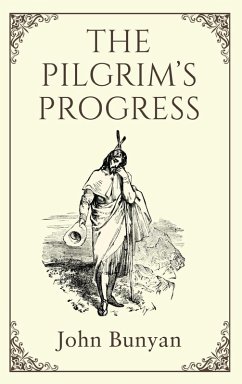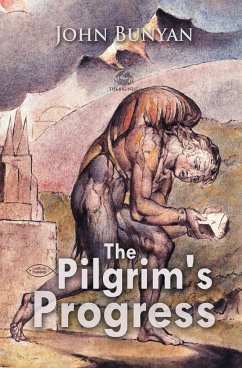
John Bunyan
Broschiertes Buch
The Pilgrim's Progress
Versandkostenfrei!
Versandfertig in 1-2 Wochen

PAYBACK Punkte
7 °P sammeln!




The Pilgrim's Progress is a Christian allegory written by John Bunyan. He began his work while in the Bedfordshire county prison for violations of the Conventicle Act, which prohibited the holding of religious services outside the auspices of the established Church of England. The text is considered one of the most significant works of religious English literature.
Bunyan was born in 1628 in the heart of England, a mile south of Bedford a few years before the English Civil War. His family was so poor that when his father died, John was left only one shilling and his tinker's anvil. The boy had little formal education. However, he learned to read and feasted on medieval romances in which valiant knights underwent great trials and conquered villains and monsters. In youth he boasted a mouth so profane it shocked even wicked men. Additionally, he loved to dance, bell-ring and lead Sunday sports, all considered improper by Puritans. Although he attended church, he had little religious feeling. John turned sixteen in 1644 at the height of the Civil War. He joined the army. Since Bedford was a Parliamentarian stronghold, it is probable he served Cromwell. While on duty he was "drawn out" to take part in a siege. Another soldier asked to take his place. "[A]s he stood sentinel he was shot in the head with a musket bullet and died." John came to see this as proof God had spared his life for a great work. Returning home, John married. He was twenty. His wife was as poor as he; between them, they did not have a dish or spoon. Her godly father had furnished her with two Christian books--books which John read with an increasingly troubled conscience. One Sunday as he played, he heard a voice. "Will you leave your sins and go to Heaven, or have your sins and go to Hell?" His distress was acute. He felt that he had sinned so gravely he was beyond forgiveness. Nonetheless, he struggled to find peace with God by obeying scriptural commands. Outwardly, he reformed and put off swearing and improper sports. Inwardly, he still longed to participate. He read the Bible. Although without peace, he thought God must be pleased with him. One day he overheard four women speaking of their inner religious experience, and he realized he lacked something. Leaving the Church of England, he joined their fellowship. Still, he lacked peace. Only after reading Luther's commentary on Galatians did he realize he could be justified by faith alone. His inner struggles were not over, but he found relief. Bunyan felt compelled to tell others of faith in Christ. He became a field preacher. So effective were his words, people would arrive at dawn to hear him preach at noon.
Produktdetails
- Verlag: The Big Nest
- Seitenzahl: 240
- Erscheinungstermin: 25. August 2018
- Englisch
- Abmessung: 203mm x 133mm x 15mm
- Gewicht: 307g
- ISBN-13: 9781787248304
- ISBN-10: 1787248305
- Artikelnr.: 53713494
Herstellerkennzeichnung
Libri GmbH
Europaallee 1
36244 Bad Hersfeld
gpsr@libri.de
Für dieses Produkt wurde noch keine Bewertung abgegeben. Wir würden uns sehr freuen, wenn du die erste Bewertung schreibst!
Eine Bewertung schreiben
Eine Bewertung schreiben
Andere Kunden interessierten sich für




